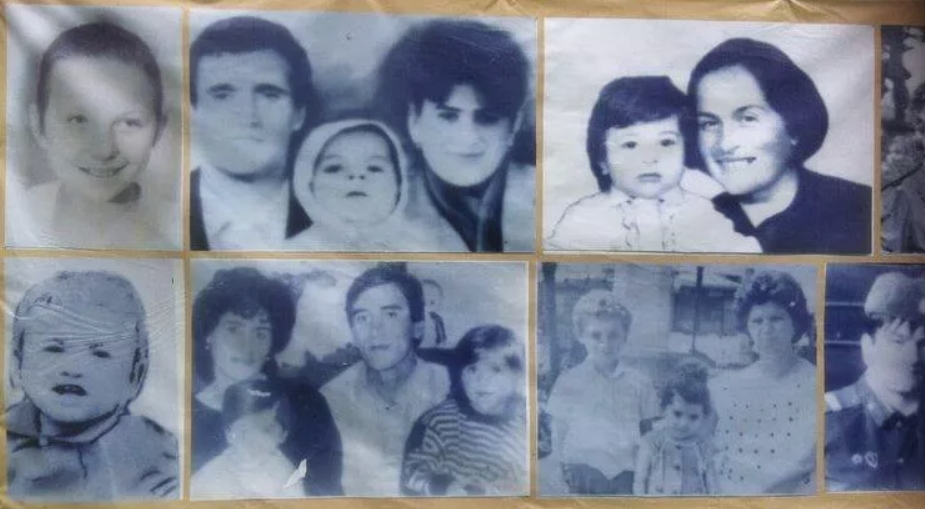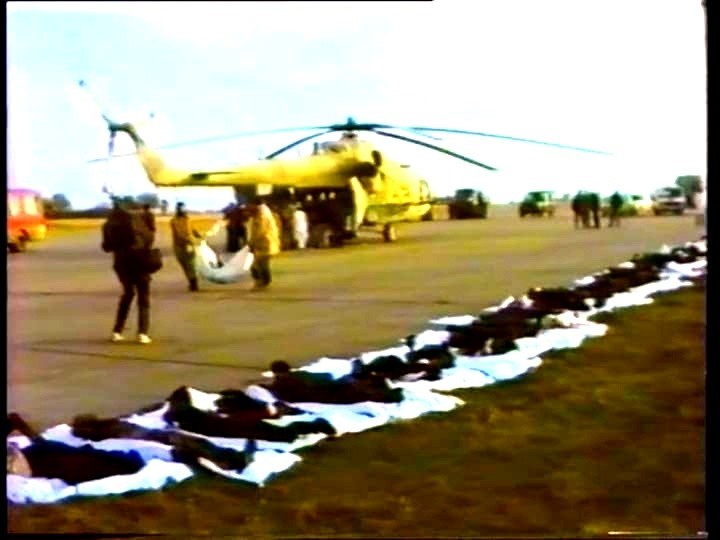The worst of days: 30 years on from the Lata tragedy, by Alexej Lomia

On 14 December 1992, the troops of the State Council of Georgia shot down a helicopter over the village of Lata which was carrying refugees from the besieged town of Tkuarchal to Gudauta.
The generation of 45 year-olds and older remembers well the events of 1989, when a group of Georgian nationalists organised riots in the centre of Tbilisi, which ended in bloodshed. More than twenty people died.
Abkhazians, who are rebels by nature, like any speeches against the authorities, but not these. There are many reasons. It was strange for us to understand that the exit from the USSR was demanded by the Georgians, who were favoured by the system more than anyone else in this state.
Georgia was the most subsidised republic in the Soviet Union. For the most part, the citizens of this union-republic lived in abundance, with incomes clearly exceeding the average earnings in the Union. The most large-scale construction-works and projects were implemented there – just the one Ingur Hydro-electric Plant is worth mention. It had the largest number of young people with higher education in percentage terms.
It is possible to enumerate ad infinitum what kind of cream Georgia skimmed off in the common allied pot, and, of course, we were at a loss to understand what it was they lacked. But even more incomprehensible to us was that after these bloody events the whole world felt obliged to mourn and sympathise with them. I well remember those commemorative steles to the dead which they considered it right to erect in all corners of what was then Georgia. Probably, one must assume that they are such fighters for justice, for freedom, against the Evil Empire, and the whole world should therefore be imbued with sympathy for their losses and empathise with them.
Open wound
In fact, as history has demonstrated, all this was the usual falsehood. After all, it was these "fighters against the oppression of Soviet tyranny and the prison of peoples" who turned out to be invaders. It was the most notable of them who were at the forefront of the occupation-corps which entered the territory of Abkhazia and started a bloody war. It was they who brought grief, suffering, acts of arson, and countless victims to our Motherland.
And it was one of them who in the full knowledge, and on the orders, of the top military leadership of Georgia fired the missile that shot down a helicopter over the Lata Gorge on 14 December 1992.

Reading the names and surnames, your hair stands on end. It is unlikely that there will be a family in Abkhazia who did not have a relative or close friend among those who fell victim to that criminal act.
This is the biggest tragedy in the modern history of the people of Abkhazia. Refugees flying from the besieged town of Tkuarchal over the "mainland" to escape hunger and cold were burned alive in the wreckage of the downed helicopter.
If you summon the willpower and carefully read the list of the dead, you clearly understand the scale of the atrocity. How many were the ruined destinies, how many the unfulfilled hopes, how many the children, including even those unborn, how many old men and women. The "freedom-loving adherents of European values" spared no one. 
And if you start to delve into who exactly died, then you realise with horror that there were entire families, brothers and sisters. And there is no gradation by nationality. Of course, there were mostly Abkhazians, but there were also Georgians and Russians, because Tkuarchal was a multinational town.
You read the memories of people who miraculously did not get on board that helicopter – one person turned up late, someone else could not be accommodated – and it might seem that they should be joyful. But not in this case. After all, their relatives, neighbours, friends were probably among the dead. This is the worst crime perpetrated by the Georgian invaders. This is the biggest tragedy, an open wound in our souls.

